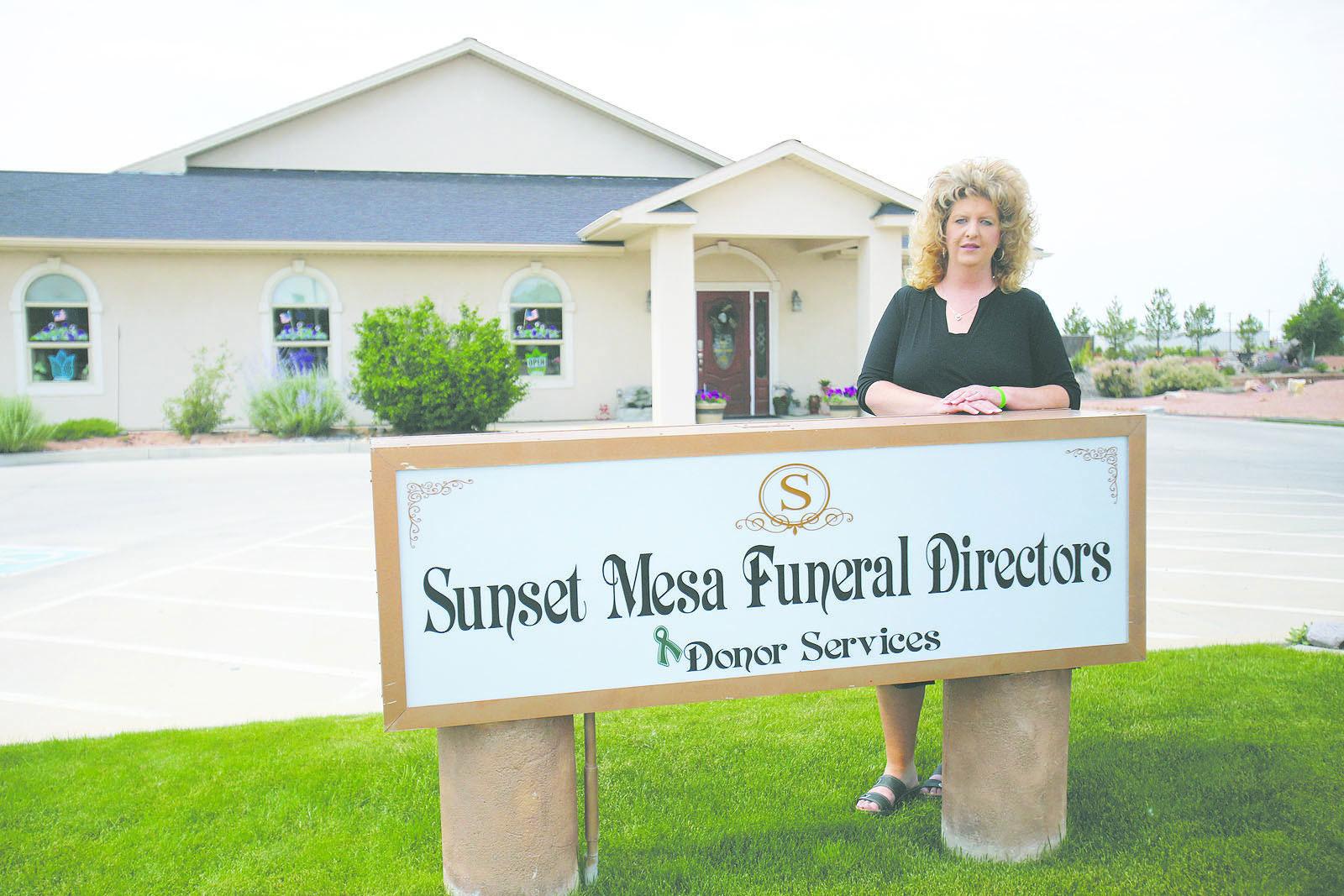
Updated at 5:51 p.m. on Tuesday, July 2, 2024.
A court has vacated the sentences of the Sunset Mesa Funeral Home directors in Montrose who illegally sold body parts. According to a ruling Tuesday from the 10th Circuit Court of Appeals, the district court erred in how it sentenced the two women in January 2023.
The case involves the sentencing of Megan Hess and Shirley Koch who pleaded guilty to charges related to their selling and mailing body parts to body broker services without informing the families of the deceased. Hess and Koch had been sentenced to 20 and 15 years in prison, respectively.
In the ruling, the 10th Circuit Court of Appeals agreed with arguments that the district court did not follow recommended sentencing guidelines correctly for the crimes, which were said to have taken place from 2010 to 2018 including hundreds of victims. Specifically, the ruling said certain sentencing enhancements were inappropriately applied. Those enhancements included miscalculating the total monetary loss, these are specific guidelines for crimes involving vulnerable victims and for crimes conducted by sophisticated means.
Hess pleaded guilty to one count of mail fraud in the case, specifically for shipping the remains of twelve bodies that were obtained fraudulently. Koch pleaded guilty to a separate count of mail fraud, this one for shipping nine victims.
The case will now head back for resentencing with new guidance.
Joy Christian’s father died in 2014 and was dismembered without the family’s consent at Sunset Mesa Funeral Home. She said she was not shocked to learn that the case would need further consideration.
“I don't think it shows that (prosecutors) weren't prepared or anything,” Christian said, noting the lack of oversight on funeral homes. “I just think that there's enough loopholes in the law that it's going to provide things like this for people like them because there's such little regulation on the industry period.”
According to the ruling, at the Jan, 3 2023 sentencing hearing the district court sided with a presentence report which included calculated losses above $1 million. That number included the losses attributable to the amounts paid to the funeral homes by next of kin as well as amounts paid by the body-parts purchasers.
This calculation was incorrect, the appeals court ruled, because the loss of money paid by body-parts purchasers should not have been included and the losses to next of kin should have taken into account legitimate services provided, in this case funeral and cremation services. That decision is relevant because a higher monetary loss results in a longer sentencing recommendation.
“We conclude (1) that the district court erred by including in the actual-loss total the amounts the body-parts purchasers paid Hess, (2) that the district court erred by categorically refusing to offset the value of goods and services the next of kin received at the time of the fraud,” the decision reads.
The appeals court ruled that the losses to body-parts purchasers could not be included because they did not amount to a pecuniary harm, which is “a harm that is monetary or that otherwise is readily measurable in money.”
The government estimated that the total losses to body-parts purchasers was more than $500,000, based on bank records and invoices showing what was paid to the funeral home. The government argued these amounted to an actual loss because some of the body parts were infected with Hepatitis C, an infectious disease, and that purchasers would not have bought the parts had they known they were being sold without the consent of the next of kin.
However, the 10th Circuit Court of Appeals found that no evidence was presented that showed the body-parts purchasers sought refunds or “would not have purchased the remains had they known the remains were not in fact donated, and instead were stolen.”
“Yet the (presentence reports) for both Defendants found that no restitution was necessary for the body-parts purchasers because they did not request it and also because they ‘profited from the instant offense,’ ‘received a product as negotiated,’ and even ‘derived an economic benefit from the transaction,’” the decision said.
The presentence report for Koch justified the recommendation by noting “She bragged to a former employee and friend about a trip to Disneyland that was funded from selling gold teeth extracted from a decedent.”
Additionally, the appeals court found fault with the application of a vulnerable victims enhancement in the case. In its ruling, the court said that it was inappropriate because it the district court did not show that the victims in the case were vulnerable in a way that made it easier for the defendants to commit fraud.
“We do not agree that the inference of vulnerability to be drawn from those who have lost a family member is so powerful “that there can be little doubt about [their] unusual vulnerability” to the fraud that occurred here,” the decision reads. The court similarly tossed the application of a “sophisticated means” enhancement used in Koch’s sentencing.
In determining that the sentencing court’s procedural error was “not harmless,” the 10th Circuit Court of Appeals ruled that the case must be remanded for resentencing because the error was such that it affected the guidelines for sentencing. The resentencing will not be allowed to include losses by the body-parts purchasers or for services actually rendered for families of the victims.
This is a developing story and will be updated









